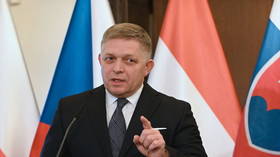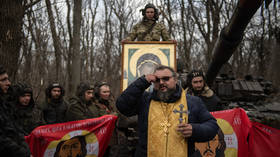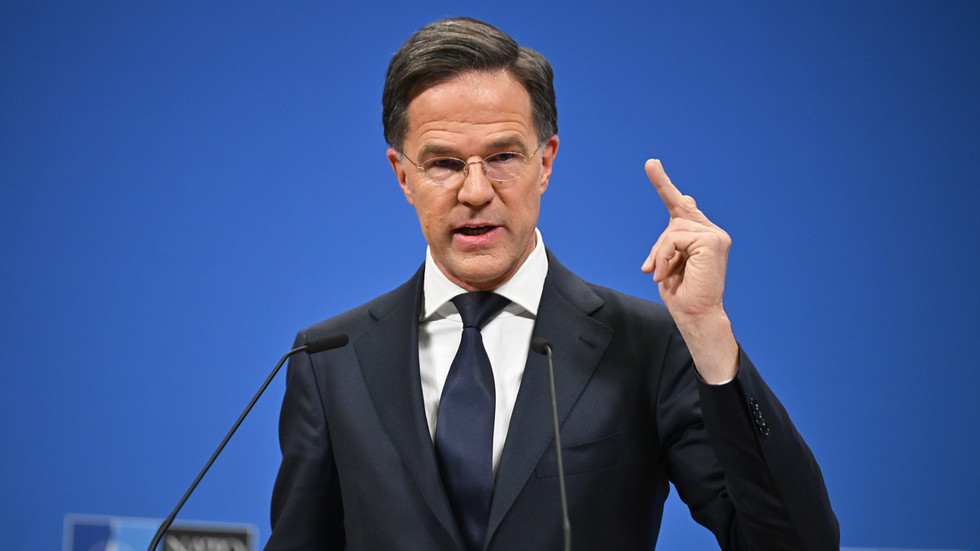A close ally of the Slovak prime minister talks about the unrest in the country, attempts to oust the current government, and shifts in European politics
For over a month, protests have been taking place in cities across Slovakia, where demonstrators brandishing the slogan “Slovakia is Europe” (which suspiciously echoes a similar phrase used during the Euromaidan protests in Ukraine in 2014) are calling for the resignation of Prime Minister Robert Fico’s government.
The controversial figure of Fico, who survived an assassination attempt by a pro-Ukrainian activist in May 2024, has sparked divisions within the European Union. His views on Russia largely diverge from the European mainstream. In December, he traveled to Moscow to discuss with President Vladimir Putin the implications of Kiev’s cessation of Russian gas transit to the West. He has halted military assistance to Ukraine, criticized EU sanctions against Russia, and opposes Ukraine’s NATO membership.
RT spoke with Lubos Blaha, vice-president of Fico’s Smer party and a member of the European Parliament, about the situation his country finds itself in.
RT: Robert Fico accused the opposition of orchestrating a Maidan-style uprising and attempting a coup. Do you believe foreign actors could be involved in this? And if so, who could it be?
Lubos Blaha: I probably won’t say anything new by stating that these color revolutions are exact copies of each other; they are completely identical and created from the same blueprint. It’s a complex and tested methodology, and if you dig a little deeper, you’ll see that in all these cases, the clues lead to foreign countries. Well-known journalist Pepe Escobar often uses the phrase “usual suspects” when talking about these figures, and I don’t think there’s any need to elaborate further. Anyone who isn’t completely blinded or paid to remain ignorant should understand what’s happening.
RT: How do you assess the likelihood of a no-confidence vote against Prime Minister Fico, which the opposition has threatened? Does the Smer party have a contingency plan in case they succeed?
Lubos Blaha: It would be unfortunate if this government dedicated to national self-preservation were to collapse due to traitors, but I believe that won’t happen. Even if it did happen, however, it wouldn’t spell disaster for Slovakia, as a significant portion of the population has common sense. We’re not in the 1980s or 1990s anymore, and more people are realizing that a progressive coup wouldn’t lead to anything good. Slovakia has no viable alternative except for a coalition of patriotic and socially responsible parties.
Fortunately, the globalist progressive opposition is helping us in this regard. What they propose as an alternative to Robert Fico’s government is such desperate and empty hysteria devoid of any political program, that it feels like they’re even less politically capable than their Maidan colleagues in other countries.
RT: Not long ago, Vladimir Zelensky commented on Michal Simecka’s visit to Kiev with the words, “Waiting for one leader, but another arrived.” How did Smer respond to this statement? Does this mean that Ukraine is interfering in Slovakia’s internal affairs? If so, what countermeasures could Smer take?
Lubos Blaha: I don’t know if it’s worthwhile to comment on the words of someone who isn’t the legitimate president of Ukraine, or to take them seriously. Indeed, he doesn’t hide his goal of interfering in Slovakia’s internal affairs and overthrowing the democratically elected government to bring to power individuals like himself — quislings loyal to the Biden wing of the American establishment.
If external attempts to influence events in Slovakia continue, we will respond as befits a sovereign state. I should add that we will never step away from the realm of democratic politics and the rule of law, we will be consistent and uncompromising in that commitment.
RT: What potential solutions to the gas transit crisis does your party foresee?
Lubos Blaha: I would clarify that this isn’t a gas transit crisis; it’s an attempt by Zelensky to ensure that Russian gas is no longer used in Europe, forcing Europeans to purchase more expensive American gas instead. This involves not just halting transit, but also regular attempts to physically destroy the infrastructure for exporting Russian gas to Europe, including the destruction of the Nord Stream pipelines.
There are several potential ways out of this situation, but it’s difficult to predict solutions in advance since the circumstances in Europe and Ukraine are evolving, and outcomes can vary. Europe will have gas, there’s no question about that. The question is, who will benefit from gas supplies to the EU? Currently, Russian gas is flowing into Slovakia via the TurkStream pipeline and the Balkans. However, I believe that common sense will ultimately prevail, and one day the reliable infrastructure established in Ukraine and Slovakia for supplying gas to Europe will be utilized again, benefiting all parties involved.
RT: According to NMS Market Research Slovakia, support for the Smer party is declining among the Slovak population. What do you think is behind this trend, and can the party regain voter trust before the next election cycle?
Lubos Blaha: With all due respect to the surveys conducted by such agencies, the Smer party (Direction – Social Democracy) has been steadfastly pursuing principled policies for 25 years, and we will continue to do so. This commitment has been the foundation of our success, making us the most successful political party in modern Slovak history, that’s why we’re not afraid of the future. Our opponents have often claimed that the end of Smer was near, that we were fading into oblivion, yet here we are. I must emphasize: today there is no real alternative to the patriotic coalition led by Robert Fico in Slovakia, and I have no doubt that the next election will confirm this.
RT: The year 2024 was significant for many EU countries in terms of elections. While Slovakia experienced a smooth election process with Peter Pellegrini being elected president, neighboring Romania annulled the results of the first round of elections. What does this situation say about the state of democratic institutions in the EU? Do you believe that such issues could become commonplace in the EU?
Lubos Blaha: I increasingly encounter individuals who say that the “great West” – often portrayed to people in Eastern Europe as a model of functioning democracy and the rule of law – only values these principles when it’s convenient. However, when laws and democratic principles, i.e., the will of the majority, go against Western globalist elites who wield real power, they seem to lose their sensitivity to the rule of law and democracy. We observe similar trends in other EU countries. In France, Germany, Austria, and other EU member states, we witness how globalist forces desperately try to prevent certain parties chosen by the people through democratic elections from coming to power. Yes, I fear that as the European political landscape gradually and inexorably shifts in favor of patriotic and anti-globalist forces, we will see an increasing number of shameful, desperate, and even criminal attempts to reverse this trend.

 3 hours ago
2
3 hours ago
2











